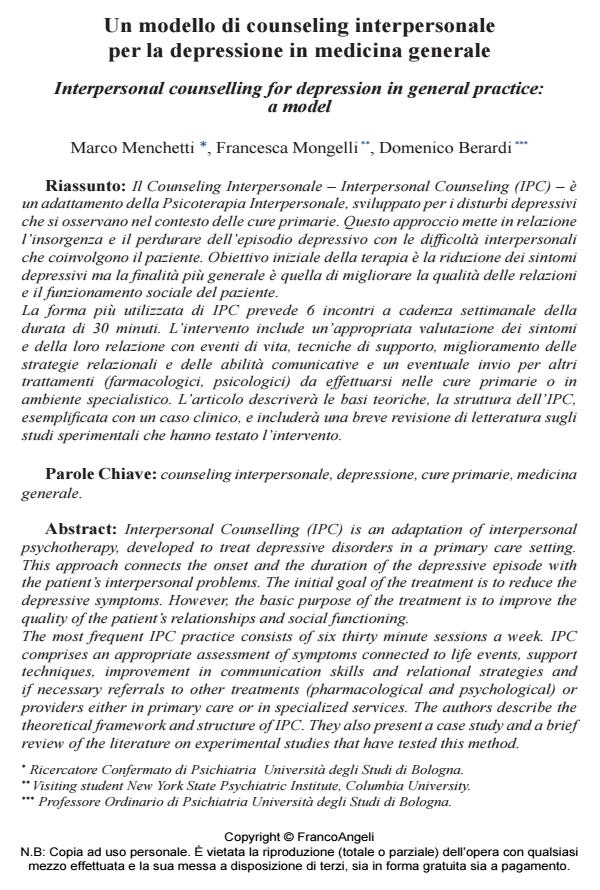Interpersonal counselling for depression in general practice: a model
Journal title RIVISTA SPERIMENTALE DI FRENIATRIA
Author/s Marco Menchetti, Francesca Mongelli, Domenico Berardi
Publishing Year 2014 Issue 2014/1
Language Italian Pages 14 P. 85-98 File size 1525 KB
DOI 10.3280/RSF2014-001006
DOI is like a bar code for intellectual property: to have more infomation
click here
Below, you can see the article first page
If you want to buy this article in PDF format, you can do it, following the instructions to buy download credits

FrancoAngeli is member of Publishers International Linking Association, Inc (PILA), a not-for-profit association which run the CrossRef service enabling links to and from online scholarly content.
Interpersonal Counselling (IPC) is an adaptation of interpersonal psychotherapy, developed to treat depressive disorders in a primary care setting. This approach connects the onset and the duration of the depressive episode with the patient’s interpersonal problems. The initial goal of the treatment is to reduce the depressive symptoms. However, the basic purpose of the treatment is to improve the quality of the patient’s relationships and social functioning. The most frequent IPC practice consists of six thirty minute sessions a week. IPC comprises an appropriate assessment of symptoms connected to life events, support techniques, improvement in communication skills and relational strategies and if necessary referrals to other treatments (pharmacological and psychological) or providers either in primary care or in specialized services. The authors describe the theoretical framework and structure of IPC. They also present a case study and a brief review of the literature on experimental studies that have tested this method
Keywords: Counseling interpersonale, depressione, cure primarie, medicina generale
Marco Menchetti, Francesca Mongelli, Domenico Berardi, Un modello di counseling interpersonale per la depressione in medicina generale in "RIVISTA SPERIMENTALE DI FRENIATRIA" 1/2014, pp 85-98, DOI: 10.3280/RSF2014-001006